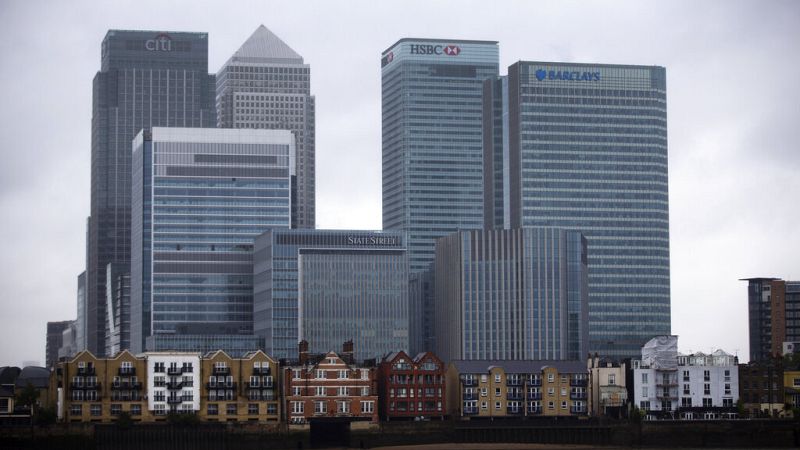UK bank shares tumble as sector fears new tax

Leading banks in the UK saw their share prices hit hard as news of a proposed new bank tax emerged.
NatWest share prices lost more than 4.7% nearing midday in Europe, Lloyds saw a dip of 4.5%, and Barclays lost 3.7%. This dragged down the benchmark stock index in London; the FTSE 100 was down by nearly 0.4% at time of reporting.
“NatWest, Lloyds and Barclays were the FTSE 100’s biggest fallers on Friday morning as investors wondered if the era of bumper profits, dividends and buybacks is now under threat," Russ Mould, investment director at AJ Bell, said.
The idea for the new tax came in a proposal from think-tank IPPR to the UK government on Friday. They suggest charging commercial banks to compensate for the losses of the Bank of England’s massive government bond buying—‘quantitative easing’ (QE)—programme. This "will cost the taxpayers £22 billion (€25.4bn) a year in every year of this parliament," said the IPPR in their report.
The so-called quantitative easing is a monetary policy tool which provided a boost to the UK economy and yielded significant profits for a while. However, since December 2021, the Bank of England has increased its interest rate from close to zero to a peak of 5.25% and that took a toll on the programme and led to interest rate losses.
The think tank said in its report that the government could compensate for the loss partially by implementing a ‘QE reserves income levy’ on commercial banks.
It is unclear where the government stands on this issue at the time of writing the article, but analysts say that it could choke growth in the UK.
“The issue is whether taxing the banks more will end up stifling the very growth the government is keen to foster, by crimping lending to businesses and households alike," said Mould.
However, the public opinion could be supportive, given that "HSBC, Barclays, NatWest and Lloyds are expected to earn some £44 billion (€50.7bn) between them worldwide in 2025, their third-best year ever, after 2023 and 2024," he adds.
The investment director noted: “These companies have enjoyed a strong run on the stock market in recent years, and they’ve also played an important role in lending money to small and large businesses, which helps to create jobs and support the UK economy."
Today

